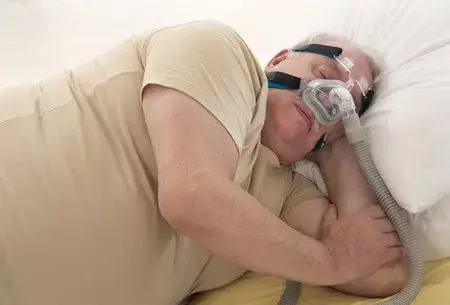- Home
- Medical news & Guidelines
- Anesthesiology
- Cardiology and CTVS
- Critical Care
- Dentistry
- Dermatology
- Diabetes and Endocrinology
- ENT
- Gastroenterology
- Medicine
- Nephrology
- Neurology
- Obstretics-Gynaecology
- Oncology
- Ophthalmology
- Orthopaedics
- Pediatrics-Neonatology
- Psychiatry
- Pulmonology
- Radiology
- Surgery
- Urology
- Laboratory Medicine
- Diet
- Nursing
- Paramedical
- Physiotherapy
- Health news
- Fact Check
- Bone Health Fact Check
- Brain Health Fact Check
- Cancer Related Fact Check
- Child Care Fact Check
- Dental and oral health fact check
- Diabetes and metabolic health fact check
- Diet and Nutrition Fact Check
- Eye and ENT Care Fact Check
- Fitness fact check
- Gut health fact check
- Heart health fact check
- Kidney health fact check
- Medical education fact check
- Men's health fact check
- Respiratory fact check
- Skin and hair care fact check
- Vaccine and Immunization fact check
- Women's health fact check
- AYUSH
- State News
- Andaman and Nicobar Islands
- Andhra Pradesh
- Arunachal Pradesh
- Assam
- Bihar
- Chandigarh
- Chattisgarh
- Dadra and Nagar Haveli
- Daman and Diu
- Delhi
- Goa
- Gujarat
- Haryana
- Himachal Pradesh
- Jammu & Kashmir
- Jharkhand
- Karnataka
- Kerala
- Ladakh
- Lakshadweep
- Madhya Pradesh
- Maharashtra
- Manipur
- Meghalaya
- Mizoram
- Nagaland
- Odisha
- Puducherry
- Punjab
- Rajasthan
- Sikkim
- Tamil Nadu
- Telangana
- Tripura
- Uttar Pradesh
- Uttrakhand
- West Bengal
- Medical Education
- Industry
Sleep Apnea associated with low levels of testosterone in severely obese men: study

Among severely obese men, obstructive sleep apnea is significantly linked with lower levels of both total testosterone (TT) and free testosterone (FT), suggests a study published in the Frontiers of Endocrinology.
Disturbances in sleep affect cardio-metabolic and reproductive health. Obstructive sleep apnea syndrome represents a major complication of obesity and has been tied with gonadal axis activity changes and lower serum testosterone concentration in men. However, there is no consistent opinion on the effect of obstructive sleep apnea on testosterone levels in men.
A group of researchers from Serbia conducted a study to determine the influence of obstructive sleep apnea on total and free testosterone levels in severely obese men.
The researchers included 104 severely obese (Body Mass Index (BMI) ≥ 35 kg/m2) men, aged 20 to 60, who underwent anthropometric, blood pressure, fasting plasma glucose, lipid profile, and sex hormone measurements. All participants were subjected to polysomnography. According to the apnea-hypopnea index (AHI) patients were divided into 3 groups: <15 (n = 20), 15 - 29.9 (n = 17) and ≥ 30 (n = 67).
The results of the study are as follows:
- There was a significant difference between apnea-hypopnea index (AHI) groups in age, BMI, the prevalence of metabolic syndrome (MetS), continuous metabolic syndrome score (siMS), total testosterone (TT) and free testosterone (FT) levels.
- Total testosterone (TT) level was in a significant negative correlation with AHI, oxygen desaturation index (ODI), BMI, MetS and siMS.
- Also, free testosterone (FT) was in a significant negative correlation with AHI, ODI, BMI, age, MetS and siMS.
- The multiple regression analysis revealed that both AHI and ODI were insignificant correlation with TT and FT after adjustment for age, BMI, siMS score and MetS components.
Thus, the researchers concluded that in severely obese men, Obstructive sleep apnea is significantly linked with low Total testosterone (TT) and free testosterone (FT) levels.
Reference:
Obstructive Sleep Apnea Is Associated with Low Testosterone Levels in Severely Obese Men by Gajić et. al published in the Frontiers in Endocrinology.
https://doi.org/10.3389/fendo.2021.622496
Dr. Shravani Dali has completed her BDS from Pravara institute of medical sciences, loni. Following which she extensively worked in the healthcare sector for 2+ years. She has been actively involved in writing blogs in field of health and wellness. Currently she is pursuing her Masters of public health-health administration from Tata institute of social sciences. She can be contacted at editorial@medicaldialogues.in.
Dr Kamal Kant Kohli-MBBS, DTCD- a chest specialist with more than 30 years of practice and a flair for writing clinical articles, Dr Kamal Kant Kohli joined Medical Dialogues as a Chief Editor of Medical News. Besides writing articles, as an editor, he proofreads and verifies all the medical content published on Medical Dialogues including those coming from journals, studies,medical conferences,guidelines etc. Email: drkohli@medicaldialogues.in. Contact no. 011-43720751


